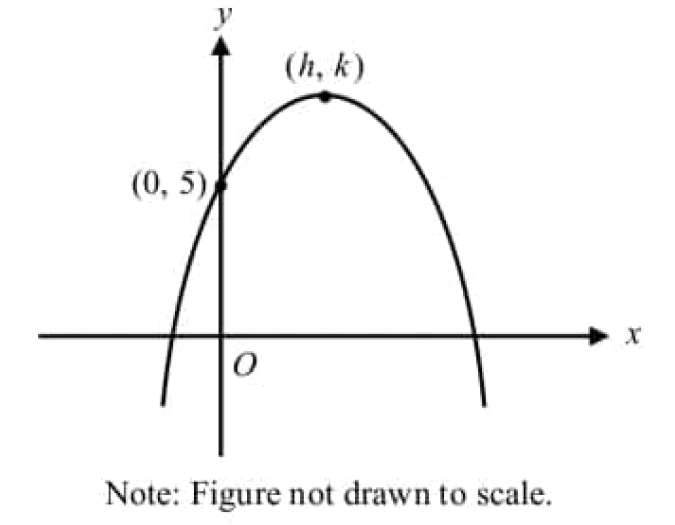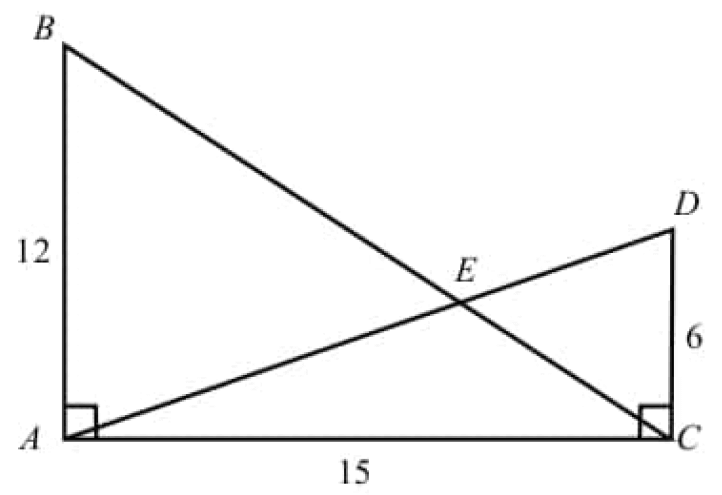LIMIT AND CONTINUITY OF FUNCTIONS OF TWO VARIABLES
Suppose that A = {(x, y) a < x < b,c < y < d} ⊂ R2, F : A -> R . We say that F is continuous at (u, v) if the following hold :
(1) F is defined at (u, v)
(2) lim (x, y) -> (u,v) F (x, y) = L exits
(3) L = F(u, v).
The following results are true for multivariable functions:
1. The sum, di¤erence and product of continuous functions is a continuous function.
2. The quotient of two continuous functions is continuous as long as the denominator is not 0.
3. Polynomial functions are continuous.
4. Rational functions are continuous in their domain.
5. If f (x ; y) is continuous and g(x) is defined and continuous on the range of f, then g(f (x ; y)) is also continuous.
Problem 1 :
Evaluate lim (x, y) -> (1, 2) g(x, y), if the limit exists, where
g(x, y) = (3x2 - xy) / (x2+y2+3)
Solution :
To check if the given limit exist
Let us approach origin along x axis.
lim (x, y) -> (x, 0) g(x, y)
= lim (x, y) -> (x, 0)(3x2 - 0) / (x2+0+3)
= 3x2 / (x2+3) ≠ ∞
Let us approach origin along y axis.
lim (x, y) -> (0, y) g(x, y)
= lim (x, y) -> (0, y)(3(0)2 - y) / (02+y+3)
= -y/(y+3) ≠ ∞
To evaluate, we have to apply x = 1 and y = 2
g(x, y) = (3x2 - xy) / (x2+y2+3)
g(x, y) -> (1, 2) = (3(1)2 - (1)(2)) / (12+22+3)
g(x, y) -> (1, 2) = (3-2) / (1+4+3)
g(x, y) -> (1, 2) = 1/8
So, the value of g(x, y) = (3x2 - xy) / (x2+y2+3) is 1/8.
Problem 2 :
Evaluate
lim (x, y) -> (0, 0) cos [(x3+y2)/(x+y+2)]
If the limit exists.
Solution :
First let us check, if the limit exists.
First let us approach (0, 0) along x-axis.
Then f(x, 0)
= cos [(x3+02)/(x+0+2)]
= cos [x3/(x+2)]
Approaching (0, 0) along y-axis.
Then f(0, y)
= cos [(03+y2)/(0+y+2)]
= cos [y2/(y+2)]
So, limit exists.
= lim (x, y) -> (0, 0) cos [(x3+y2)/(x+y+2)]
= lim (x, y) -> (0, 0) cos [(03+02)/(0+0+2)]
= lim (x, y) -> (0, 0) cos (0/2)
= lim (x, y) -> (0, 0) cos 0
= 1
Problem 3 :
Let
f(x, y) = (y2-xy)/(√x-√y)
for (x, y) ≠ 0. Show that lim (x, y) -> (0, 0) f(x, y) = 0.
Solution :
f(x, y) = (y2-xy)/(√x-√y)
By doing the direct substitution, we will get the indeterminant form.
So,
f(x, y) = lim (x, y) -> (0, 0) (y2-xy)/(√x-√y)
Multiply by the conjugate of denominator, we get
= lim (x, y) -> (0, 0) [(y2-xy)/(√x-√y)] ⋅[(√x+√y)/(√x+√y)]
= lim (x, y) -> (0, 0) [y(y-x)(√x+√y)/(x-y)]
= lim (x, y) -> (0, 0) [-y(x-y)(√x+√y)/(x-y)]
= lim (x, y) -> (0, 0) [-y(√x+√y)]
Applying x and y as 0, we get
= 0
So, the answer is 0.
Problem 4 :
Evaluate lim (x, y) -> (0, 0) cos (ex sin y/y), if the limit exists.
Solution :
= lim (x, y) -> (0, 0) cos (ex sin y/y)
To check of if the limit exists or not, we will approach the origin along x-axis.
f(x, 0)
= lim (x, y) -> (x, 0) cos (ex lim (x, y) -> (x, 0) sin y/y)
= lim (x, y) -> (x, 0) cos (ex )≠∞
we will approach the origin along y-axis.
f(0, y)
= lim (x, y) -> (0, y) cos (e0 lim (x, y) -> (0, y) sin y/y) ≠∞
So, the limit exists.
By applying x = 0 and y = 0, we get
= cos (e0 )
= cos 1
Problem 5 :
Let g(x, y) = x2y/(x4+y2) for f(x, y) ≠ 0 and f(0, 0) = 0
(i) Show that lim (x, y) -> (0, 0) g(x, y) = 0 along every line y = mx, m ∈ ℝ
(ii) Show that lim (x, y) -> (0, 0) g(x, y) = k/(1+k2) along every parabola y = kx2, m ∈ ℝ\{0}
Solution :
(i) Let us apply y = mx
g(x, y) = x2(mx)/(x4+(mx)2)
g(x, y) = mx3/(x4+m2x2)
g(x, y) = mx/(x2+m2)
lim (x, y) -> (0, 0) g(x, y) = lim (x, y) -> (0, 0) mx/(x2+m2)
= 0
(ii) Let us apply y = kx2
g(x, y) = x2(kx2)/(x4+(kx2)2)
g(x, y) = kx4/(x4+k2x4)
g(x, y) = k/(1+k2)
lim (x, y) -> (0, 0) g(x, y) = lim (x, y) -> (0, kx2) k/(1+k2)
Problem 6 :
Show that
f(x, y) = (x2-y2)/(y2+1)
is continuous at every (x, y) ∈ ℝ2.
Solution :
f(x, y) = (x2-y2)/(y2+1)
Let (x, y) -> (a, b) ∈ ℝ2.
lim (x, y) -> (0, kx2)f(x, y) = lim (x, y) -> (a,b)(x2-y2)/(y2+1)
= (a2-b2)/(b2+1)
We get the defined value.
So, the given function is continuous every (x, y).
Problem 7 :
Let g(x, y) = ey sin x/x, for x ≠ 0 and g(0, 0). Show that g is continuous at (0, 0).
Solution :
lim(x, y) -> (0, 0) g(x, y) = lim(x, y) -> (0, 0) (ey sin x/x)
= lim(x, y) -> (0, 0) (ey ) lim(x, y) -> (0, 0)(sin x/x)
= 1 (1)
= 1
Problem 8 :
Is
f (x ; y) = x2y + 3 x3 y4 - x + 2y
continuous at (0; 0) ? Where is it continuous?
Solution :
f (x ; y) is a polynomial function, therefore it is continuous on R2. In particular, it is continuous at (0;0).
Kindly mail your feedback to v4formath@gmail.com
We always appreciate your feedback.
©All rights reserved. onlinemath4all.com
Recent Articles
-
Digital SAT Math Problems and Solutions (Part - 203)
Jul 05, 25 10:27 AM
Digital SAT Math Problems and Solutions (Part - 203) -
Digital SAT Math Problems and Solutions (Part - 202)
Jul 04, 25 09:44 AM
Digital SAT Math Problems and Solutions (Part - 202) -
Digital SAT Math Problems and Solutions (Part - 201)
Jul 04, 25 02:23 AM
Digital SAT Math Problems and Solutions (Part - 201)

